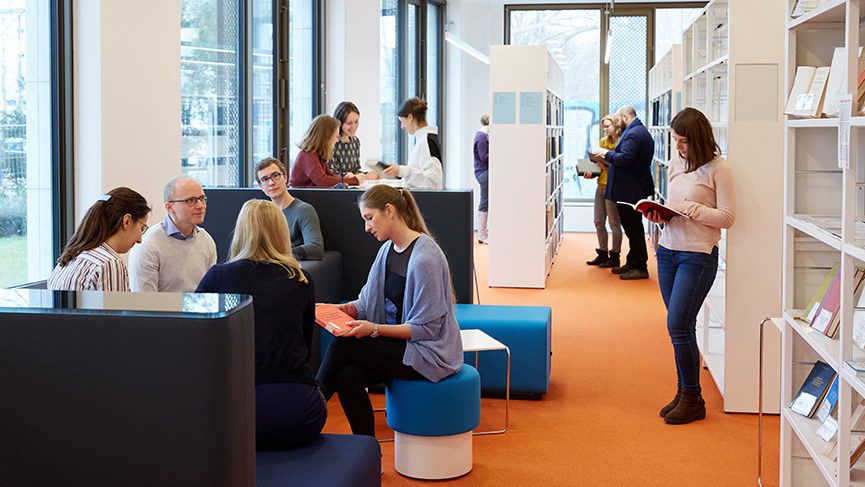Organization

The Institute is a foundation under public law with around 370 members of staff and locations in Frankfurt am Main and Berlin. It is a member of the Leibniz Association, which connects almost 100 independent scientific institutions that are dedicated to socially, economically and ecologically relevant issues. Leibniz Institutes are jointly funded by the federal and state governments because of their national importance.
The tasks of the DIPF are carried out by five closely cooperating departments:
- Information Center for Education
(Research and provision of infrastructures for educational science, educational research and the public interested in education among others) - BBF | Research Library for the History of Education
(Historical educational research, library and archive for German educational history in an international context) - Teacher and Teaching Quality
(Investigation of the quality and impact of educational processes in teaching, schools and universities) - Educational Governance
(Analysis of educational inequalities and scientific monitoring of school and system-related reform processes) - Education and Human Development
(Research on children’s individual development and successful learning and their best possible support)
The DIPF actively seeks exchange and cooperation with stakeholders in educational-professional practice as well as in politics, administration and science - nationally and internationally. It maintains close partnerships, including with numerous universities such as Goethe University Frankfurt, Humboldt University Berlin and Darmstadt University of Applied Sciences, with which several professors working at the DIPF have been jointly appointed.
The structure and organizational culture of the Institute are constantly being developed to be able to react quickly and flexibly to changing requirements and introduce innovative ideas into the discourse. The DIPF considers the competencies and motivation of all employees and junior researchers as a key resource for successful work. Therefore, it pays special attention to providing appropriate training and support offers. One example is the internal program “PhDIPF”, which systematically supports the Institute’s PhD students.
The DIPF stands for open and clear communication as well as lively cooperation. Diversity among its employees is seen as potential and opportunity. This self-image is supported at the Institute by the representation of disabled employees and equal opportunities officers, among others. It was confirmed in 2024 by the award of the “berufundfamilie +vielfalt” certificate. The DIPF also faces up to the challenge of using resources responsibly and contributing to sustainable development, which is supported at the Institute by sustainability officers, among others.